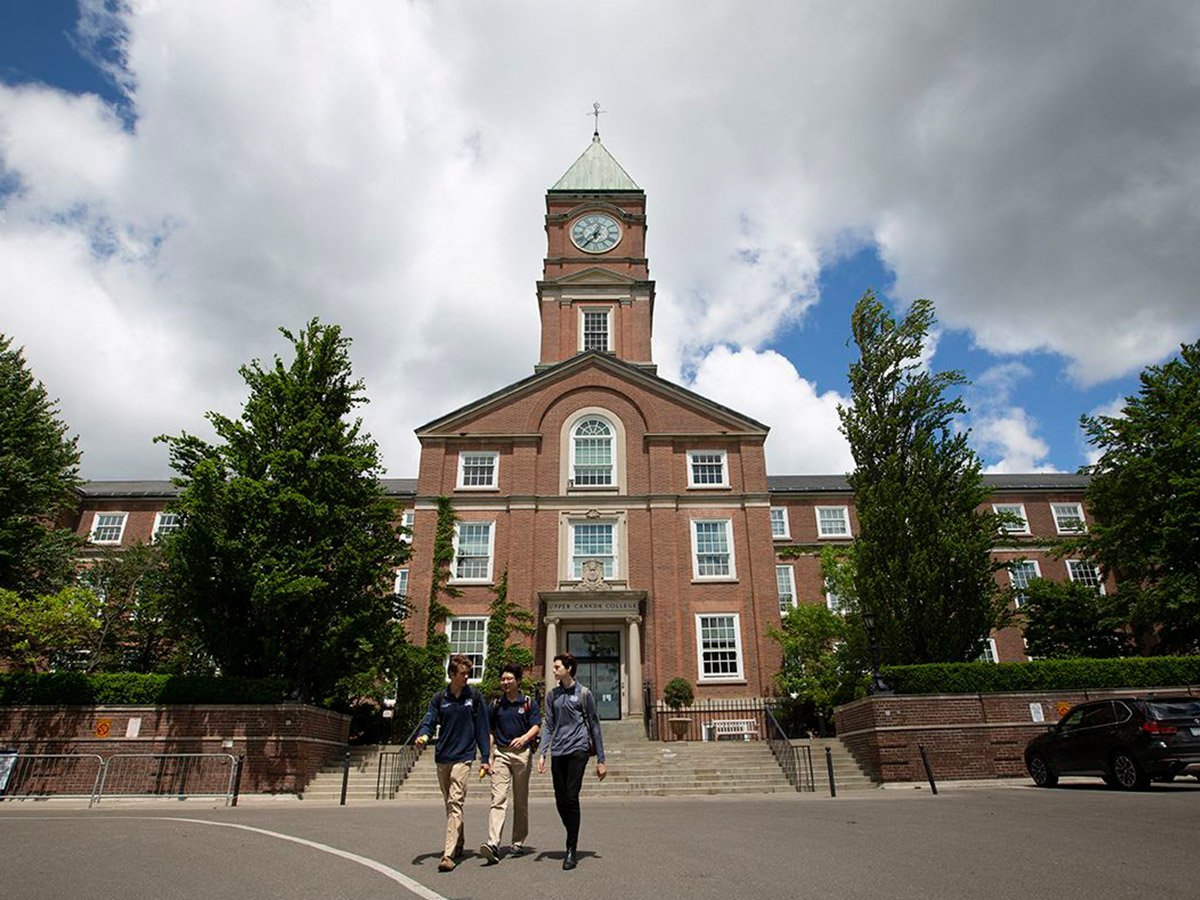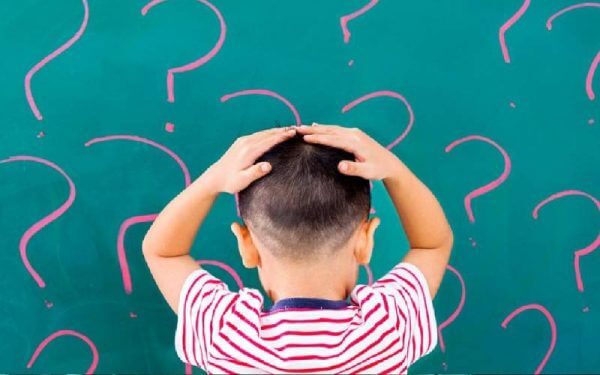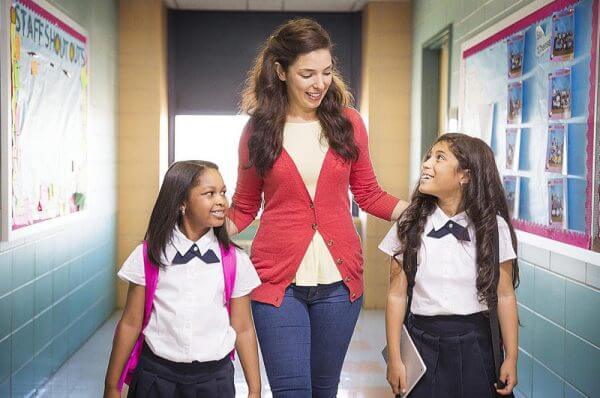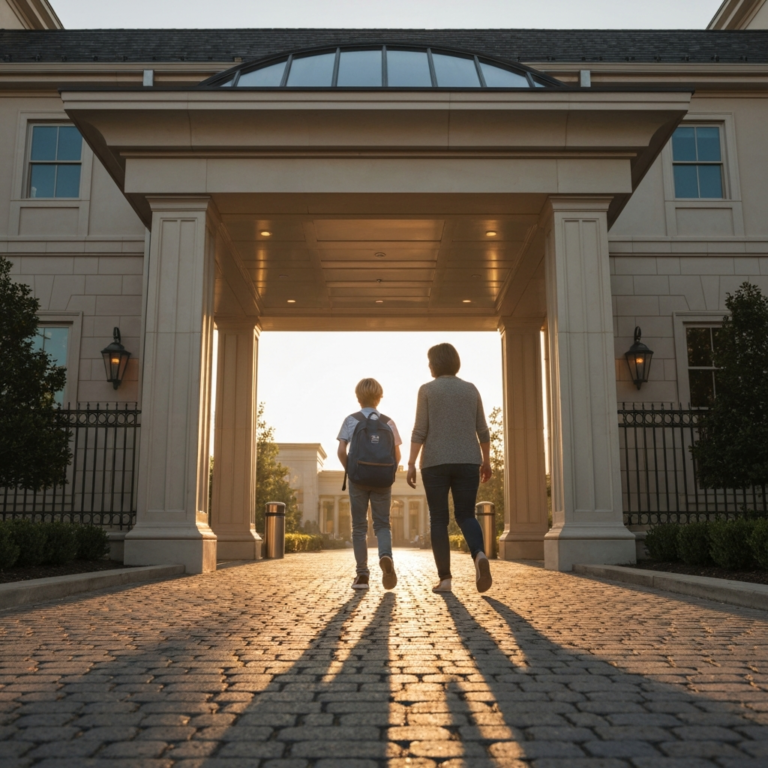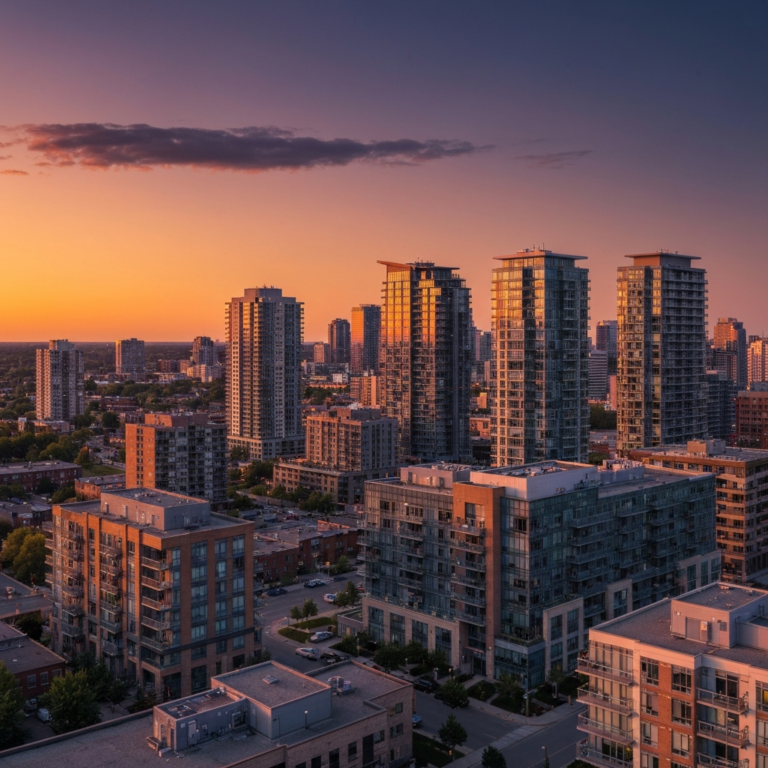Is private school better than public? It’s a question that thousands of Canadian parents ask each year when deciding what’s best for their child’s education. From class sizes and safety to academic outcomes and enrichment programs, each option offers unique benefits. This guide will help you compare private and public schools across key factors to make the most informed decision for your family.
Many people tend to speak highly of the fact that in private schools, classes are smaller, the curriculum is enriched, and parental involvement is always strong. In the meantime, all the provincial guidelines are provided by public schools which are accessible, diverse and consistent. This guide explores the core benefits of private school vs public options to help parents make informed decisions. However, which one is better for your child? Looking for top private schools in Mississauga? Explore institutions known for academic excellence, small class sizes, and personalised learning.
This guide goes straight to the heart of the battle between the private and the public school, utilizing insights of experts, research backed statistics, and real life comparisons in order to ensure you make the right choice based on the goals of the family, the values of the family and the budget of the family. Whether you are taking on a high school in Ontario, or going more local and checking out a public district high school, this decision guide will help you-step by step. Is private school better than public for moral values education – Is private school better than public for moral values education? Families seeking value-based or religious education often find private schools a better fit.
Private vs Public Schools: Key Differences at a Glance
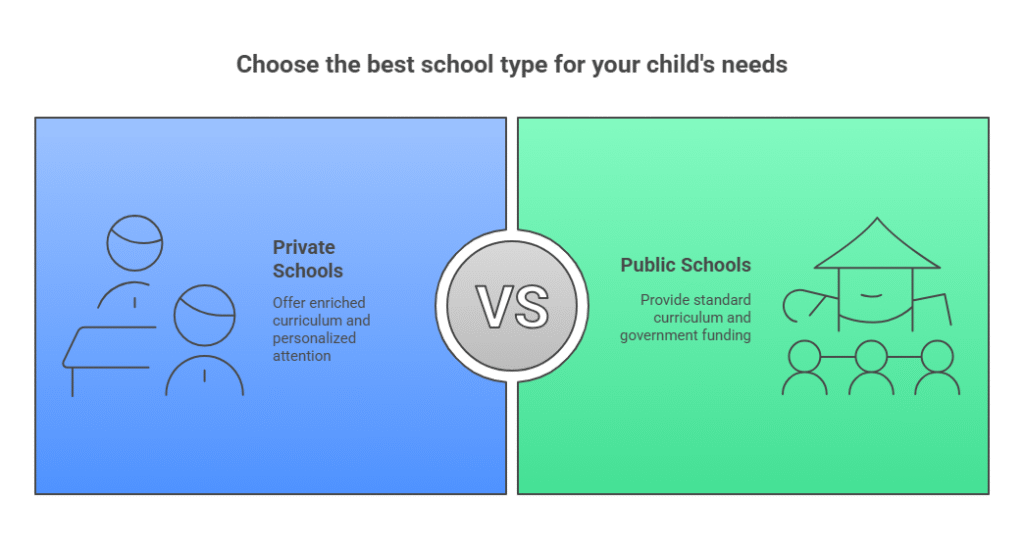
And to give a clear picture of a deeper analysis, before you go into details, here is a quick idea of how the differences emerge between a private and a public school in key aspects. The side-by-side analysis will also enable you to notice the significant differences and determine what would be of paramount importance to your child in the future.
| Factor | Private Schools | Public Schools |
| Curriculum | Enriched, flexible (IB, AP, faith-based, OSSD options) | Standard provincial curriculum; magnet/specialist streams in some districts |
| Class Size & Attention | Small (12–18); high teacher-student interaction | Larger (25–35+); less personalized feedback |
| Tuition vs Funding | $10,000–$30,000 CAD; financial aid available | Fully government-funded; free for residents |
| Teacher Expertise | Specialists, often with advanced degrees | Government-certified educators |
| Safety & Discipline | Strong codes of conduct, consistent supervision | Varies by district; structured but less standardised |
| Extracurriculars | Arts, STEM, sports, and leadership programs with dedicated support | Depends on the school/district budget and staffing |
| Technology & Facilities | Often upgraded: smart tech, labs, studios | Ranges from advanced to outdated |
| Special Programs & Support | IB, AP, gifted tracks, ESL, accommodations | ESL, IEPs, special education; depth varies |
| Parental Involvement | Strong school-parent engagement culture | Inconsistent; some schools encourage involvement, others less so |
| Student Wellbeing | Holistic focus, on-site counsellors, and values education | SEL initiatives growing, support varies across districts |
Academic Outcomes and Learning Quality
Another major concern of families between private and public schools is academic quality. In this section author compares the preparation of students for a standardised test, college education, and future success in this respect in each of the school types.
Curriculum Flexibility and Rigor
Private schools often feature enriched academic offerings such as the International Baccalaureate (IB), Advanced Placement (AP), and customised OSSD course. These pathways offer greater flexibility and challenge for students ready to go beyond the provincial standard.
Public schools follow a fixed provincial curriculum, but many include magnet programs or subject-focused streams-especially in urban districts-that provide advanced opportunities comparable to private settings.
Test Scores and College Readiness
According to a 2023 Statistics Canada report, students attending private schools scored on average 8–9% higher in reading and math at age 15 than their public-school peers (StatsCan Report). However, this performance advantage is strongly tied to parental education levels and household income-not school quality alone.
Extracurriculars and Student Enrichment
Beyond academics, extracurricular activities help students build confidence, teamwork, and creativity. Here’s how public and private institutions differ in enrichment offerings.
Sports, Arts, and Club Availability
Private schools are known for extensive after-school offerings-from basketball and robotics to music ensembles and debate. These programs are usually well-funded and staffed by passionate educators or professionals. Is private school better than public for extracurricular activities – Is private school better than public for extracurricular activities? Private schools typically offer diverse clubs, arts, and enrichment programs beyond the classroom.
Public schools also offer strong extracurriculars but can be limited by budget or staffing constraints. In high-performing districts, students may still enjoy rich activities in sports, tech, or the arts.
Real Opportunities for Leadership and Creativity
Many private institutions promote leadership development through student councils, prefect systems, and ambassador programs. This structured support fosters creativity and initiative, which is valuable for post-secondary applications. Is private school better than public for sports opportunities – Is private school better than public for sports opportunities? Many private schools offer elite coaching, competitive leagues, and specialised athletic facilities.
Public schools offer student leadership roles, though access to mentorship and structured opportunities may depend on school size and staff availability.
Student Safety, Discipline, and Environment
Is private school better than public for academic outcomes – Is private school better than public for academic outcomes? Many studies suggest private school students often outperform due to enhanced academic focus. A child’s learning thrives in a safe, respectful environment. Both school types strive for but their approaches often differ. Is private school better than public for safe environment – Is private school better than public for safe environment? Private schools often maintain secure campuses with strict behaviour policies and close supervision.
Behaviour and Classroom Conduct
Private schools typically enforce firm behaviour codes that emphasise punctuality, respect, and dress standards. Discipline systems are often clearly outlined and consistently applied. Is private school better than public for student discipline – Is private school better than public for student discipline? Private schools tend to uphold stricter codes of conduct, fostering discipline and respect.
Public schools follow government behaviour guidelines and safe school policies. While enforcement may vary, most schools are committed to fostering respectful learning spaces.
School Safety Policies and Supervision
Smaller school size allows private institutions to monitor safety more closely through ID checks, surveillance, secure drop-offs, and access control. Many also offer on-site counselling and wellness support. Is private school better than public for technology access – Is private school better than public for technology access? Many private schools invest more heavily in modern educational technology and digital tools.
Public schools often have robust safety policies, especially in larger urban districts. However, funding and staffing limitations in rural districts can affect oversight and student support.
Teacher Quality and Classroom Attention
Teachers play a foundational role in shaping student success. This section compares their qualifications, training, and capacity for personalised support.
Qualifications and Experience of Educators
Private school teachers may hold advanced degrees in their subjects, professional certifications (e.g., PhDs in science, arts conservatory training), and often undergo ongoing professional development.
Public school teachers are provincially certified and must meet strict credentialing standards. However, staff training and specialisation can differ across regions.
Class Size and Individual Attention
Private schools often maintain student-teacher ratios of 12:1 or lower, allowing teachers to tailor instruction and offer individual mentorship.
In public schools, classrooms frequently exceed 25–30 students, making one-on-one support more challenging-especially in crowded districts.
Special Programs and Learning Support
Both school types aim to meet diverse learner needs, but their ability to personalise instruction varies by resources and structure.
Gifted Programs, IB/AP, and Learning Accommodations
Private schools typically offer gifted education, IB/AP programs, and custom learning tracks designed to challenge and support high-achieving students. Is private school better than public for special programs – Is private school better than public for special programs? Private schools frequently offer IB, AP, and other enriched academic pathways not always available in public systems. Is private school better than public for science and arts programs – Is private school better than public for science and arts programs? Private schools commonly provide richer science labs and dedicated arts instruction.
Public schools also offer specialised programming-such as gifted streams, ESL services, and IEP-based support-though their scope is determined by district budgets and staffing.
Support for Diverse Learning Needs
Private institutions often provide quicker access to therapists, counsellors, and customised learning interventions. Smaller enrollment can speed up support delivery.
Public systems offer mandated special education support, but students may face longer wait times for assessments or services due to larger caseloads.
What Matters Most to You as a Parent?
Your child’s personality, learning style, and your family’s values are central to this decision. Whether you prioritise affordability, faith-based instruction, or advanced STEM, weigh what aligns best with your long-term goals.
Family Values, Educational Priorities, and Budget
- Faith-based or moral values education
- Academic rigour and enrichment
- Technology access and innovation
- Safe, nurturing environment
- Financial feasibility and cost planning
Tuition at private schools can range from $10,000 to over $30,000 CAD annually (OurKids Tuition Guide). While scholarships exist, budgeting for additional costs-like uniforms, travel, and activities key.
Questions to Ask When Visiting Schools
- What supports are in place for student wellbeing and mental health?
- How large are typical class sizes?
- What technology and enrichment programs are available?
- How is student discipline handled?
- What is the school’s approach to parental involvement?
Making the Right Choice for Your Child
There is no one-size-fits-all answer. Some children thrive in public systems enriched with diversity, community engagement, and a broad worldview. Others benefit from the personalised, structured settings of private education, where smaller classes and targeted support foster academic growth. The key is to match the school environment with your child’s strengths, learning preferences, and emotional needs.
Consider how your child responds to structure, independence, peer dynamics, and extracurricular interests. Reflect on your family’s values-whether you prioritise academic rigour, moral education, creativity, or inclusivity. Visit schools, ask tough questions, and observe how your child reacts during tours. The right school isn’t just academically strong-it’s one where your child feels safe, supported, and motivated to reach their full potential.
When Public School Might Be the Better Fit
- You live in a strong district with excellent public offerings.
- You value inclusivity and diverse cultural representation.
- Budget constraints or long-term financial planning are a factor.
- Your child adapts well in larger peer groups.
When Private Schools May Offer More Value
- Your child needs specialised support or an advanced curriculum.
- Small class sizes and mentorship are a priority.
- You seek structured discipline and values-aligned teaching.
- You want a community with high parental engagement.
Decision Checklist for Parents
- Clarify your child’s strengths, needs, and learning style.
- Tour multiple schools and meet with staff.
- Compare curriculum, extracurriculars, and student supports.
- Weigh tuition and long-term cost factors.
- Ask about graduate outcomes and university placements.
Conclusion
is private school better than public? The truth is, there’s no one-size-fits-all answer. The “better” choice depends entirely on your child’s unique needs, your family’s values, and your long-term educational goals.
Private schools may offer smaller class sizes, specialised programs, values-based education, and a more structured environment. These features often appeal to families looking for a tailored learning experience with close student-teacher engagement and a focus on enrichment. Additionally, many private schools offer accelerated academic pathways, strong discipline systems, and a tight-knit community that nurtures both achievement and character.
Is private school better than public school in Canada – Is private school better than public school in Canada? The answer depends on your goals, budget, and the specific programs each school offers.
On the other hand, Canada’s public schools serve the vast majority of students and can deliver excellent results, especially in well-funded districts. Public schools offer free access to quality education, rich cultural diversity, and broad academic pathways including French immersion, arts-integrated programs, and advanced learning streams. For many families, public education provides the right blend of opportunity, inclusivity, and accessibility.
Frequently Asked Questions: Is Private School Better Than Public?
1. Which school is better, private or government?
It truly depends on your child’s learning style, personality, and what your family values most in education. Private schools may provide greater structure, advanced academics, and individualised support. Meanwhile, government-funded public schools offer accessibility, diversity, and strong programming-especially in well-performing districts. The quality of local schools, available programs, and how your child responds to different environments should guide your decision. Visit both types of schools, ask detailed questions, and consider long-term outcomes before making your choice.
2. Is private education good or bad?
Private education isn’t inherently good or bad-it’s only effective when it aligns with your child’s needs and your family’s goals. For some students, the smaller classes, specialised programs, and close mentorship in private schools are transformative. For others, the diversity, inclusivity, and free access to strong public education are more beneficial. It’s important to look beyond stereotypes and assess the quality, fit, and values of each school individually. When thoughtfully chosen, either option can lead to success.
3. 10 reasons why private schools are better than public schools
When aligned with your child’s needs and family priorities, private schools may offer:
1. Smaller class sizes for more personal attention
2. Enriched academic programs (IB/AP)
3. Accelerated learning opportunities
4. Consistent discipline and behavioural expectations
5. Strong extracurriculars and leadership roles
6. Highly qualified, subject-specialist teachers
7. Greater parental involvement and school transparency
8. Advanced technology and updated facilities
9. Focus on character and moral development.
10. Higher university acceptance rates and strong alumni networks
These factors can create a more tailored and success-oriented educational environment. Is private school better than public for teacher qualifications? Private schools often employ highly qualified educators with advanced degrees and subject expertise.
4. What role does parental involvement play in private schools?
Parental involvement plays a vital role in private school communities. Parents are encouraged to participate in school boards, fundraising events, classroom volunteering, mentorship programs, and student development initiatives. This involvement strengthens communication between home and school, fosters a collaborative environment, and often leads to better student outcomes. Schools view parents as partners in education, which promotes a culture of accountability and shared purpose. When families are engaged, students benefit from a consistent support system both academically and emotionally. Is private school better than public for parental involvement? Private schools typically encourage more direct engagement and communication with families.

